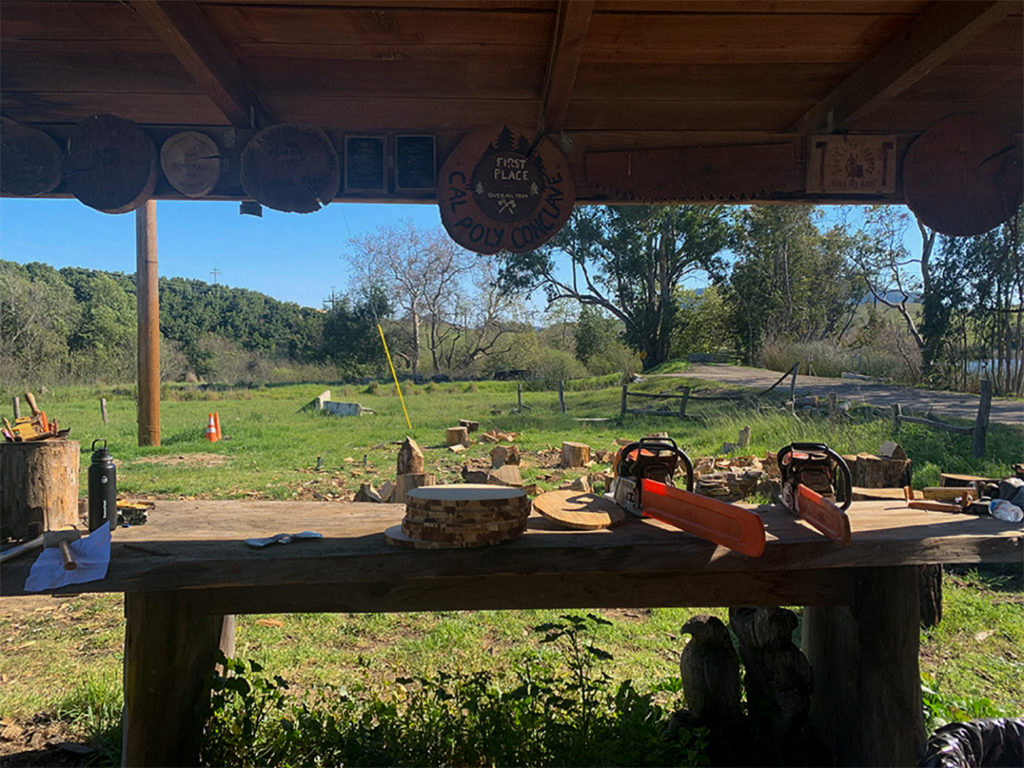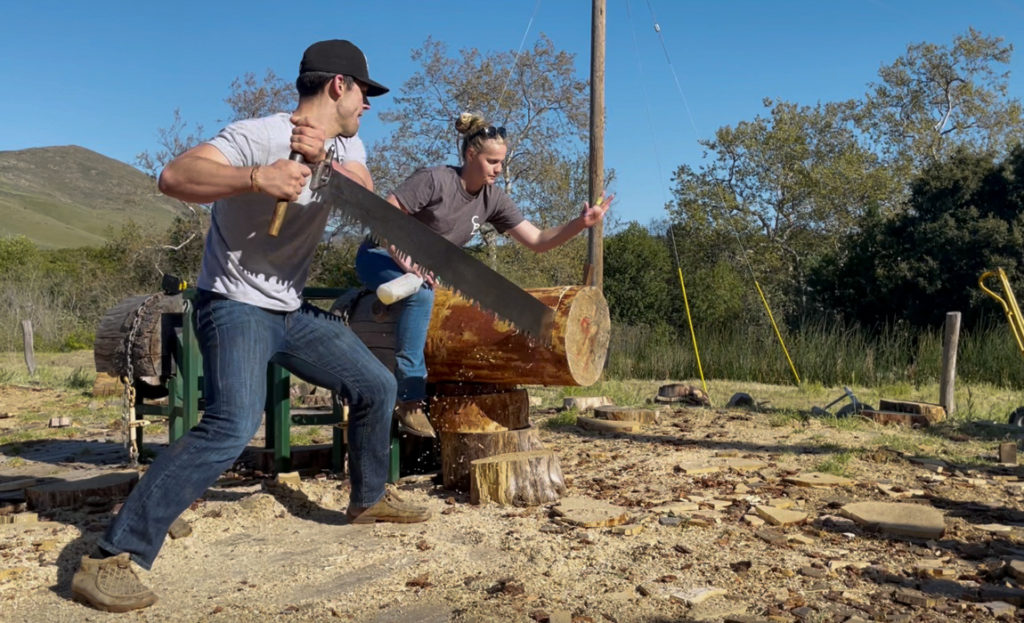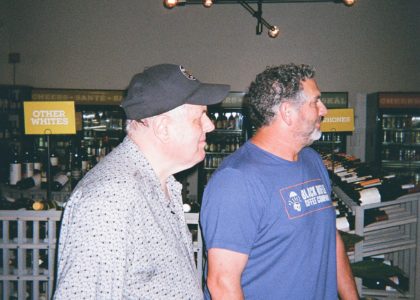By Sierra Parr
Fatigued after days of competition, animal science senior Helen Dubee stood anxiously with her teammates as the awards were announced at this year’s Sierra-Cascade logging conference.
“We were all so tired because it had been three days of just non-stop working and doing all the events,” she said. “When they told us we won, we kind of all freaked out like ‘oh my god, it actually worked.’”
When the sawdust settled, the Cal Poly logging team brought home their first championship title since the start of the COVID-19 pandemic. The team now has its sights set on the Association of Western Forestry Clubs (AWFC) national conference in Montana this April.
“Sierra-Cascade [was] almost like the first flame for the future of timber sports,” said forestry and natural resources senior and logging team president Austin Law. “Winning a regional conference is cool and all, but winning AWFC is something big, that’s something you can actually brag about.”
While the team spends each Friday practicing traditional forestry field skills like axe-throwing, chainsawing and double-bucking (two people on either side of a long hand-saw), love of competition isn’t the only thing that drives them to success.

“If for some reason there were no longer timber sports, I know for a fact that I have a good group of friends that I could call at any moment that would have my back,” Law said.
Over his years on the team, Law said many lasting friendships began at the logging unit. Alumni of the logging team flock to the Central Coast every fall to volunteer for the Cal Poly-hosted timber sports competition at Swanton Pacific Ranch, he said.
“I can think of numbers of people that have graduated from Cal Poly that were part of the logging team that still meet up every year,” Law said. “It’s almost like a family reunion every year at contests.”
Forestry and natural resources senior and logging team vice president, Owen Purcell, said he’ll always remember visiting a complex log cabin in Northern California owned by a member of the team. Together the team cut down trees on the property, went fishing, and camped in the nearby forest.
“I have a million memories like that,” Purcell said. “It’s a unique sport that a lot of people don’t get exposed to, but the interesting people you meet and the trips you go on are what make the logging team special.”
The team’s tight-knit bond is what initially drew forestry and fire sciences sophomore Kelly Schwenger to compete.
“Everyone gets along together and is always there to help you out,” she said. “Right away, as soon as I was new, everyone jumped right in. They were like ‘oh, try this out!’ or ‘we’re gonna go camping, you should come.’”
In addition to the team’s overall win at Sierra-Cascade, Schwenger earned top women’s competitor at the event. Schwenger said that of all the things she was expecting for her first-ever timber sports competition, winning an award was not one of them.
“That’s when I really got hooked,” she said. “It was great to see everyone’s enthusiasm and the bigger world that’s out there for logging.”

Forestry and natural resources junior and logging team treasurer, Mary Cizin, said the sport seemed daunting as she stood on the sidelines at her first practice.
“When I first started, I didn’t know anything,” she said. “But the girls that were there, and the guys too, were so supportive that I got over the initial intimidation super quickly.”
Though she started on the sidelines, Cizin didn’t stay there for long. Team members quickly pulled her in to try things and made an environment that was comfortable to learn skills that were new to her, she said.
Cizin described the team as something that members have varying levels of commitment to. While many attend practices and competitions regularly, some use the weekly practices as a way to destress, spend time with friends, or even get in a good workout.
Despite the niche reputation of the sport, Cizin insists that it’s much more accessible than people think.
“You don’t have to be that hick logger,” she said. “Most of us are not that stereotypical Paul Bunyan kind of thing.”
Because she was never part of team sports growing up, Dubee treasures the diverse and unique perspectives of her teammates.
“There’s people who are from the middle of San Francisco, and then there’s people who grew up chopping wood at their houses every day,” she said. “There’s no one kind of person that joins and there’s no specific way to be.”






